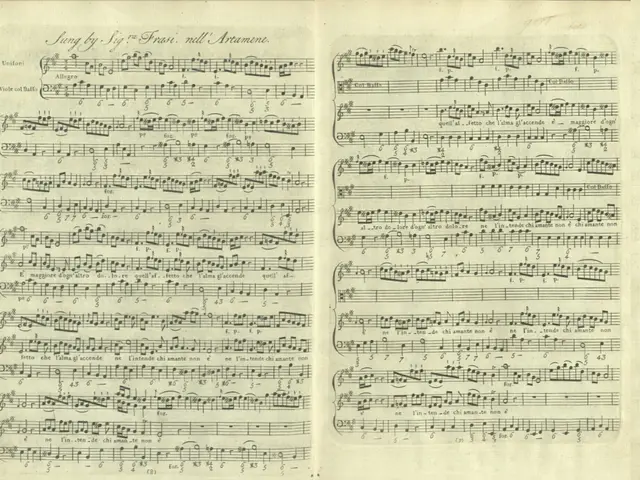Frozen EU Accession Process: Turkey's Struggle for Membership
Turkey's EU membership talks suspended; no advancement noted since 2018 by the European Parliament.
Turkey's bid for EU membership is currently stuck in a freeze, a state of affairs that has persisted since 2018. Despite Turkey's strategic importance and its cooperation on migration, the Mediterranean country's accession process stands at a standstill, as confirmed by multiple parliamentary reports and votes.
Treacherous Terrain
The freeze in Turkey's EU accession negotiations is rooted in a series of controversies, primarily concerning democracy, the rule of law, and human rights. The EU requires functional democratic institutions, respect for human rights and minorities, good neighborly relations, and adherence to EU foreign policy as prerequisites for membership[1][2]. Turkey, due to democratic backsliding, erosion of the rule of law, and ongoing human rights violations, is deemed not to have met these criteria[3][4].
Contentious Issues
Key areas of contention include systemic issues such as the non-implementation of rulings by the European Court of Human Rights, poor prison conditions, and increasing pressure on the media[4]. Additionally, Turkey has failed to fulfill key benchmarks for visa liberalization, particularly regarding counterterrorism law reforms[4][5].
Strategic Partnership and Cooperation on Migration
Despite the freeze in the accession process, Turkey remains a strategic partner for the EU, particularly in areas of migration management and security. Cooperation on migration, including the EU-Turkey migration deal, has been a cornerstone of bilateral relations[3]. However, the EU maintains that cooperation on specific issues does not replace meeting the core membership criteria.
A Glimmer of Hope
While the door to Turkey joining the bloc has not been definitively closed, it has not been straightforward. "We need to make a distinction between the country and its current leaders," Sánchez Amor stated.[3] He explained that Turkey has a vibrant civil society that is eager to maintain hope for future engagement with the EU on the basis of membership.
According to a European Commission report, Turkey's alignment with the EU's Common Foreign and Security Policy had fallen to 5% in 2024[6].
- Turkey's EU Accession Process
- Democratic Backsliding
- EU Parliament
- European Union
Enrichment Data:
Overall:
The EU accession process froze in part due to deficits in democracy, rule of law, and frequent human rights violations, as well as Turkey's failure to meet EU criteria for membership. Additionally, Turkey's foreign policy is described as confrontational and unaligned with EU norms, further straining relations with Brussels[3][4][6].
Key Concerns:
- Democracy & Rule of Law: Perpetual backsliding, a sign of erosion, and ongoing violations of human rights, including freedom of expression, judicial independence, and media freedoms[3][4].
- Human Rights: The arrest and harassment of officials like Istanbul Mayor Ekrem İmamoğlu, ongoing prison issues, and pressure on the media are areas of concern[4].
- Visa Liberalization: Turkey has yet to satisfy key benchmarks for visa liberalization due to legal and policy gaps[4].
- Foreign Policy Alignment: Turkey's foreign policy is seen as confrontational and unaligned with EU norms, further setting it apart from Brussels[4][5].
Strategic Cooperation:
Despite the freeze in the accession process, the EU maintains strategic partnership and cooperation with Turkey, particularly on migration and security[3]. However, the EU emphasizes that this cooperation does not excuse Turkey from meeting the core membership criteria.
Conclusion
Turkey's EU accession remains at a standstill due to concerns over democracy, rule of law, and fundamental rights[3][4][6]. Strategic cooperation does not offset these concerns in the eyes of the EU, which views the fulfillment of core membership criteria as non-negotiable[3][4][6]. Moreover, Turkey continues to struggle to meet these criteria, as evidenced by its ongoing democratic backsliding, human rights violations, and non-adherence to EU policies on issues such as visa liberalization.
[1] European Parliament (2025). Report on Turkey 2023 Progress Report.[2] European Parliament (2025). Resolution on Turkey 2023 Progress Report.[3] European Commission (2025). Turkey’s alignment with the EU’s Common Foreign and Security Policy.[4] Amnesty International (2025). Turkey: Annual Report.[5] Council of Europe (2025). Turkey’s compliance with Human Rights obligations.[6] European Commission (2024). Turkey’s alignment with the EU’s Common Foreign and Security Policy.
- The Turkish government continues to struggle with meeting the membership criteria set by the European Union, particularly in areas of democracy, rule of law, and human rights, which have caused the EU accession process to remain frozen.
- In 2024, Turkey's alignment with the EU's Common Foreign and Security Policy had dropped to a mere 5%, further highlighting the Mediterranean country's deficits in these areas.
- Despite the ongoing freeze, Turkey remains a strategic partner for the EU in terms of migration management and security, a cooperation that has been reinforced by the EU-Turkey migration deal.
- According to Nacho Sánchez Amor, a significant distinction should be made between Turkey as a country and its current leaders, as there is a vibrant civil society eager for future engagement with the EU on the basis of potential membership in 2024 or beyond.










